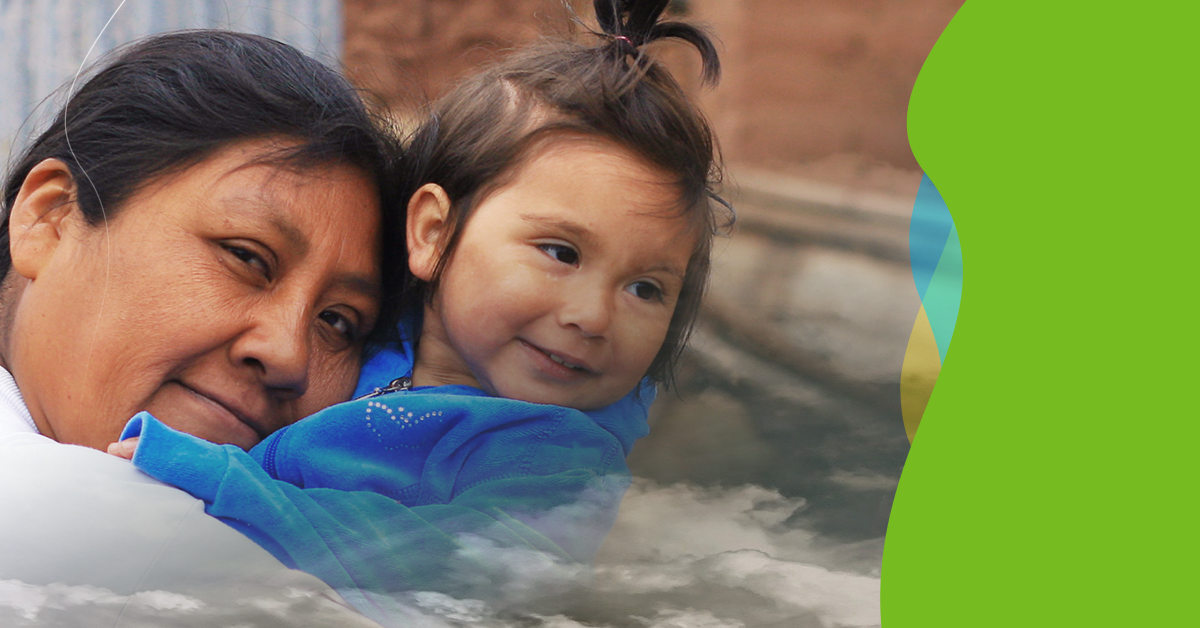Poor and vulnerable households are facing new and worsening climate risks that require urgent attention from social protection systems in Latin America and the Caribbean. A recent study conducted by the IDB introduces an innovative conceptual framework for analyzing the relationship between climate change and poverty and proposes a series of policy options to strengthen resilience of the most vulnerable to these new challenges. The study also combines statistical data on municipal-level poverty and exposure to climate shocks and proximity to high-value ecosystems.
The conceptual framework, summarized in the figure below, examines three climate-change challenges and their effects and possible social protection responses.

Three climate change challenges for poor and vulnerable households:
- First, climate change increases the frequency and intensity of extreme weather events and disasters, which have the greatest effect on the poor. In Latin America and the Caribbean—the world’s second-most disaster-prone region for storms, hurricanes and droughts—at least 78 million poor live in areas with high exposure to climate-related shocks. Not only are poor households the most exposed, they also suffer more severe consequences due to the destruction of infrastructure, productive assets, income sources and support networks; poorer households also have less access to resources for preparedness or recovery.
- Second, climate change accelerates the degradation of natural capital and ecosystems (and vice versa). In the five most biodiverse countries in the region, it is estimated that 71.5% of the poor live in areas with high-value ecosystems that provide indispensable services for human communities (for example, carbon sequestration, food, medicines, among other resources). The livelihoods of poor households are disproportionately dependent on services / resources provided by ecosystems (soils, sources of water for agriculture, timber use, etc.). To address the dual challenges of ecosystem protection and poverty reduction, innovative measures are needed.
- Third, poor and vulnerable households disproportionately suffer the adverse effects of decarbonization measures. In the short term, for example, the reconversion of polluting industries can lead to the elimination of jobs and sources of income, affecting the most vulnerable. In addition, elimination of energy subsidies, although important and necessary, can result in increased costs of basic goods and services, which affect lower-income households more severely.
These three challenges can cause critical social impacts, increasing poverty, creating food insecurity and loss of assets and livelihoods. Thus it is important for social protection systems to respond through their own mechanisms and to adapt these mechanisms to the reality of climate change.
The role of social protection in the face of these new climate challenges
Regular cash transfer mechanisms, currently benefiting around 105 million people throughout the region, can ensure minimum levels of well-being and prevent negative adaptation strategies, helping reduce pressure on ecosystems and support households affected by decarbonization measures.
Implementation of new shock-responsive transfer mechanisms (specifically activated for crisis / emergency preparedness and response) can reduce the effect of shocks on poor and vulnerable households, preventing many from falling into poverty. Cash transfer programs may include innovations that incentivize poor and vulnerable households to take pro-environment actions and measures. And social protection mechanisms—both contributory (unemployment insurance or pensions) and non-contributory (cash transfers)—can provide support for the formal and informal workers affected by decarbonization measures.
In fact, the IDB is already working with different member countries in this regard. In several countries in Latin America and the Caribbean (a subregion particularly prone to climate shocks), the IDB is helping implement social protection systems responsive to these events (strengthening social registries, payment mechanisms and governance / finance frameworks). In the Amazon area, a region of singular ecosystem value, progress is being made on the design and pilot of a transfer mechanism with the dual objective of reducing poverty and protecting environmental assets.
Climate change affects us all, but especially the poorest and most vulnerable households. Social protection systems can and must respond by adapting their instruments and finance / governance frameworks as soon as possible.
This article is part of a series of publications prepared by the IDB’s Social Sector and Climate Change and Sustainability Division to highlight the role of social issues in climate change adaptation and decarbonization processes in the region’s economies. To learn more about social protection and climate change, click here for the full publication.


Leave a Reply